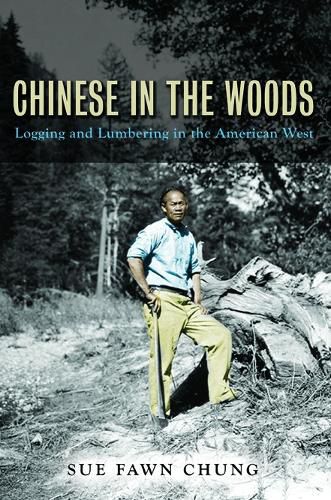Readings Newsletter
Become a Readings Member to make your shopping experience even easier.
Sign in or sign up for free!
You’re not far away from qualifying for FREE standard shipping within Australia
You’ve qualified for FREE standard shipping within Australia
The cart is loading…






Though recognized for their work in the mining and railroad industries, the Chinese also played a critical role in the nineteenth-century lumber trade. Sue Fawn Chung continues her acclaimed examination of the impact of Chinese immigrants on the American West by bringing to life the tensions, towns, and lumber camps of the Sierra Nevada during a boom period of economic expansion. Chinese workers labored as woodcutters and flume-herders, lumberjacks and loggers. Exploding the myth of the Chinese as a docile and cheap labor army, Chung shows Chinese laborers earned wages similar to those of non-Asians. Men working as camp cooks, among other jobs, could make even more. At the same time, she draws on archives and archaeology to reconstruct everyday existence, offering evocative portraits of camp living, small town life, personal and work relationships, and the production and technical aspects of a dangerous trade. Chung also explores how Chinese used the legal system to win property and wage rights and how economic and technological change ultimately diminished Chinese participation in the lumber industry. Eye-opening and meticulous, Chinese in the Woods rewrites an important chapter in the history of labor and the American West.
$9.00 standard shipping within Australia
FREE standard shipping within Australia for orders over $100.00
Express & International shipping calculated at checkout
Though recognized for their work in the mining and railroad industries, the Chinese also played a critical role in the nineteenth-century lumber trade. Sue Fawn Chung continues her acclaimed examination of the impact of Chinese immigrants on the American West by bringing to life the tensions, towns, and lumber camps of the Sierra Nevada during a boom period of economic expansion. Chinese workers labored as woodcutters and flume-herders, lumberjacks and loggers. Exploding the myth of the Chinese as a docile and cheap labor army, Chung shows Chinese laborers earned wages similar to those of non-Asians. Men working as camp cooks, among other jobs, could make even more. At the same time, she draws on archives and archaeology to reconstruct everyday existence, offering evocative portraits of camp living, small town life, personal and work relationships, and the production and technical aspects of a dangerous trade. Chung also explores how Chinese used the legal system to win property and wage rights and how economic and technological change ultimately diminished Chinese participation in the lumber industry. Eye-opening and meticulous, Chinese in the Woods rewrites an important chapter in the history of labor and the American West.